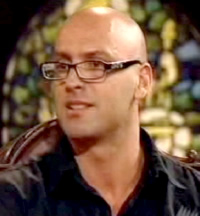Steven Angelides: Difference between revisions
Jump to navigation
Jump to search
The Admins (talk | contribs) (lets work on these) |
The Admins (talk | contribs) mNo edit summary |
||
| Line 12: | Line 12: | ||
*[http://web.archive.org/web/20050615160453/http://www.australian.unimelb.edu.au/aboutus/people/angelides.html University of Melbourne biography] | *[http://web.archive.org/web/20050615160453/http://www.australian.unimelb.edu.au/aboutus/people/angelides.html University of Melbourne biography] | ||
[[Category:Official Encyclopedia]][[Category:People]][[Category:People: Academics]][[Category:People: Australian]][[Category:People: Critical Analysts]][[Category:Research]][[Category:Research on "Child Molesters"]][[Category:Research: Broader Perspectives]] | [[Category:Official Encyclopedia]][[Category: Queer Theory]][[Category:People]][[Category:People: Academics]][[Category:People: Australian]][[Category:People: Critical Analysts]][[Category:Research]][[Category:Research on "Child Molesters"]][[Category:Research: Broader Perspectives]] | ||
Revision as of 00:41, 6 January 2010

Steven Angelides is an academic specializing in queer and gender studies. From his position as a fellow at Monash University and previously the University of Melbourne, he has published subversive analyses of child sexuality, pedophilia, and inequalities. Feminism, Child Sexual Abuse, and the Erasure of Child Sexuality earned Angelides the 2004 American Modern Language Association Crompton-Noll Award. He is currently writing a book on the history of the child sex panic, tentatively titled Seducing Children: The Fear of Child Sexuality.
While Angelides's views on adult-child sex are not explicitly liberal, he rejects the theory of intrinsic harm:
- "In psychoanalytic terms, it is an oversimplification to assume that certain sexual acts in themselves cause a standard traumatic response. If this were the case, how could we explain why it is that one child who was fondled by an adult is suffering traumatic symptoms while another subject to the same experience is not? At its most basic, what makes two people differ in their reactions to any experience is the subjective meaning attributed to that experience."[1]